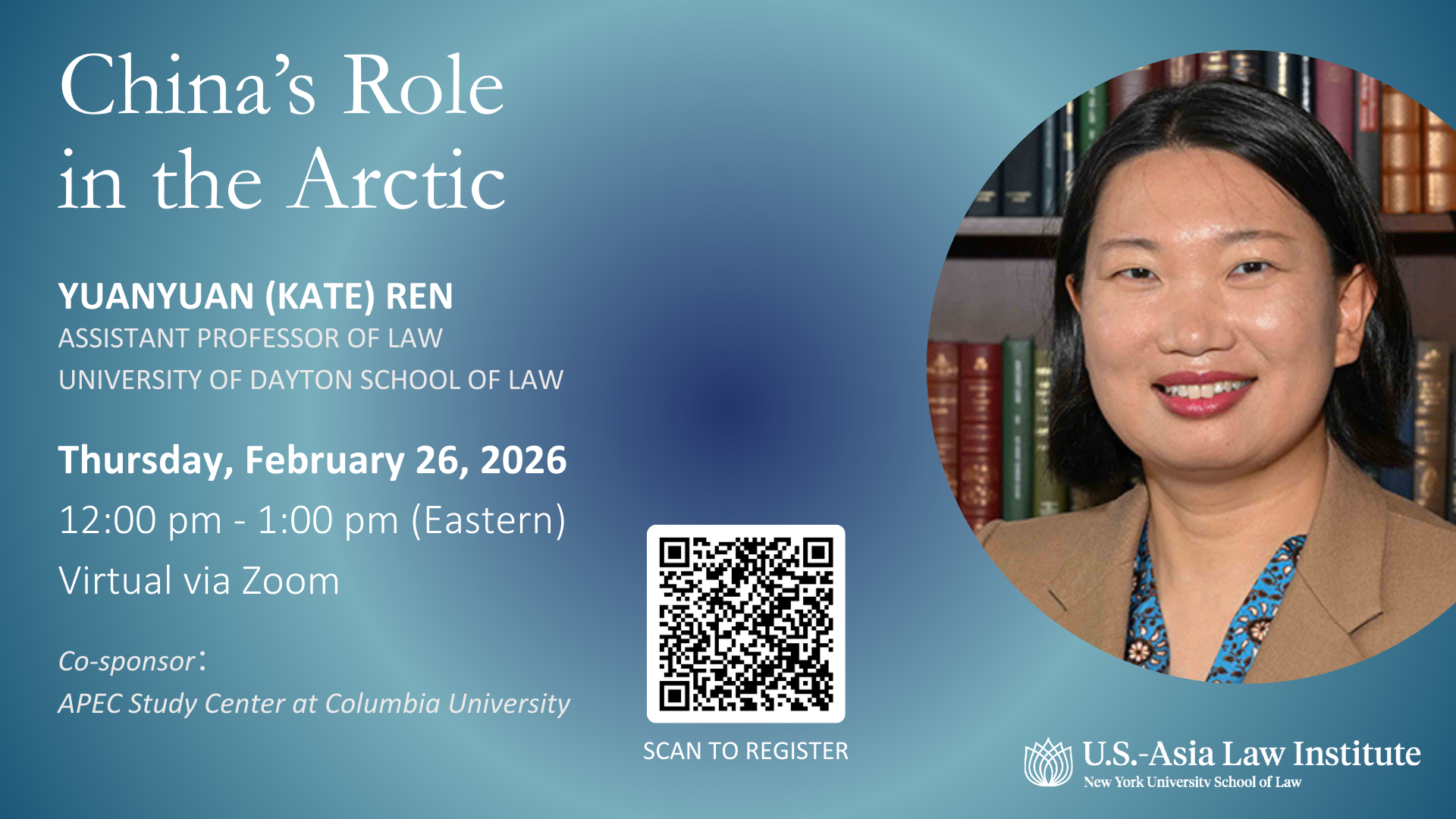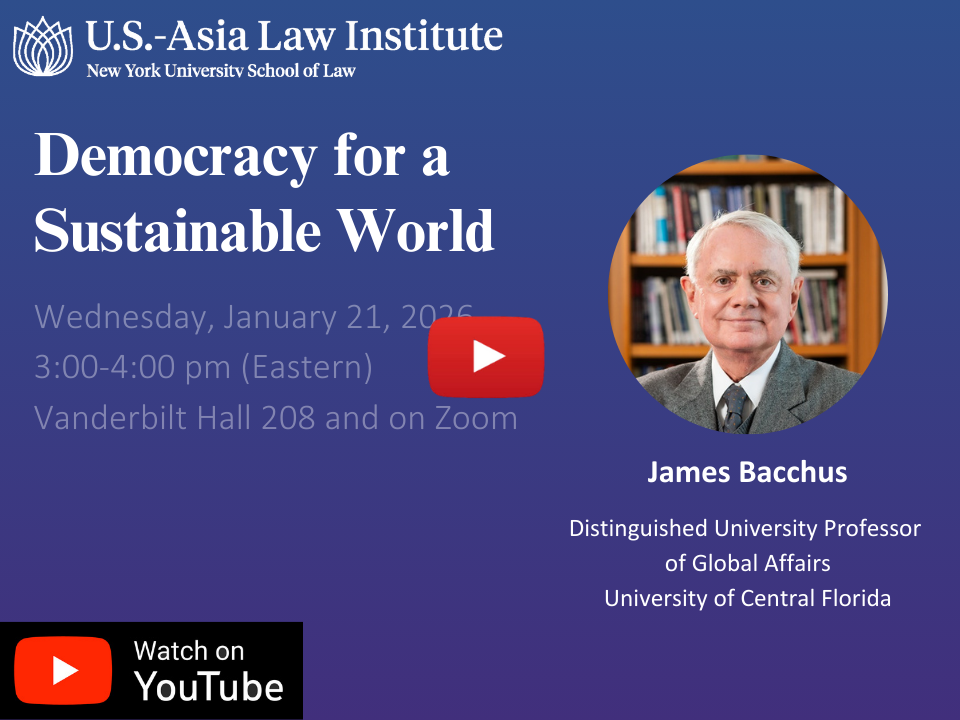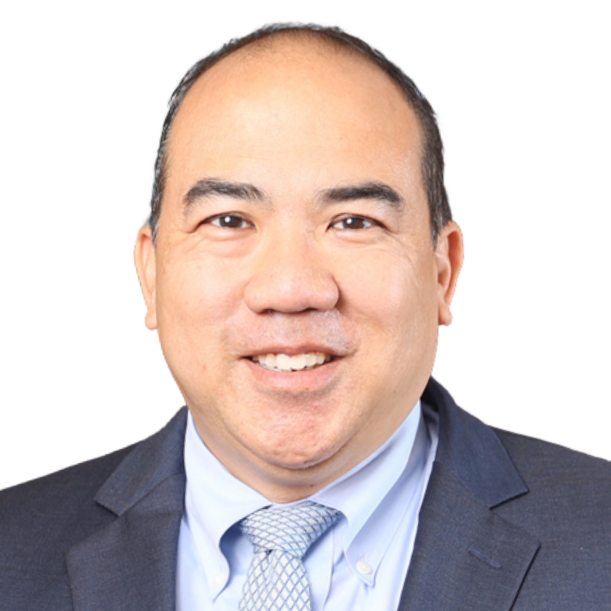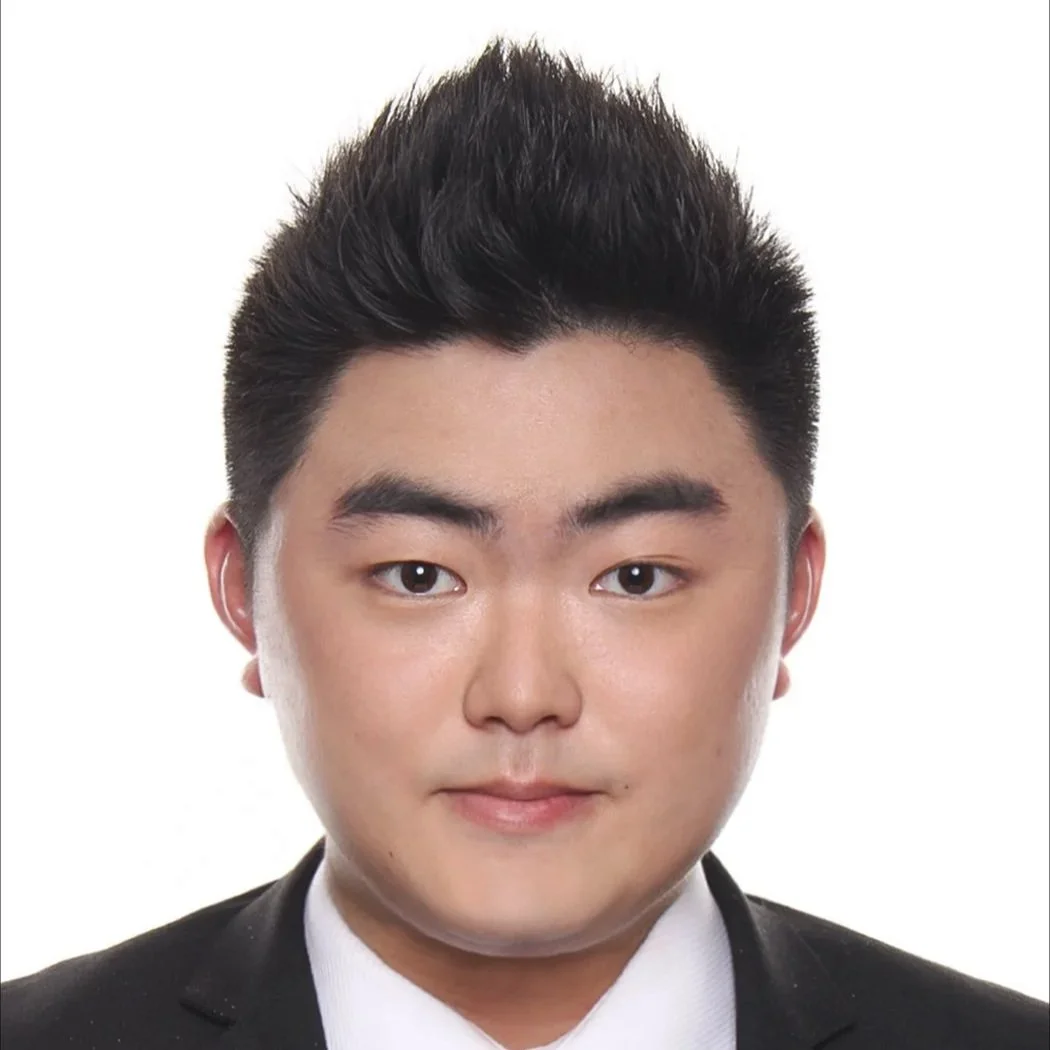Promoting Rule of Law and Human Rights in Asia
The U.S.-Asia Law Institute serves as a bridge between Asia and America, fostering mutual understanding on legal issues and using constructive engagement to advocate for legal progress.
New and Notable
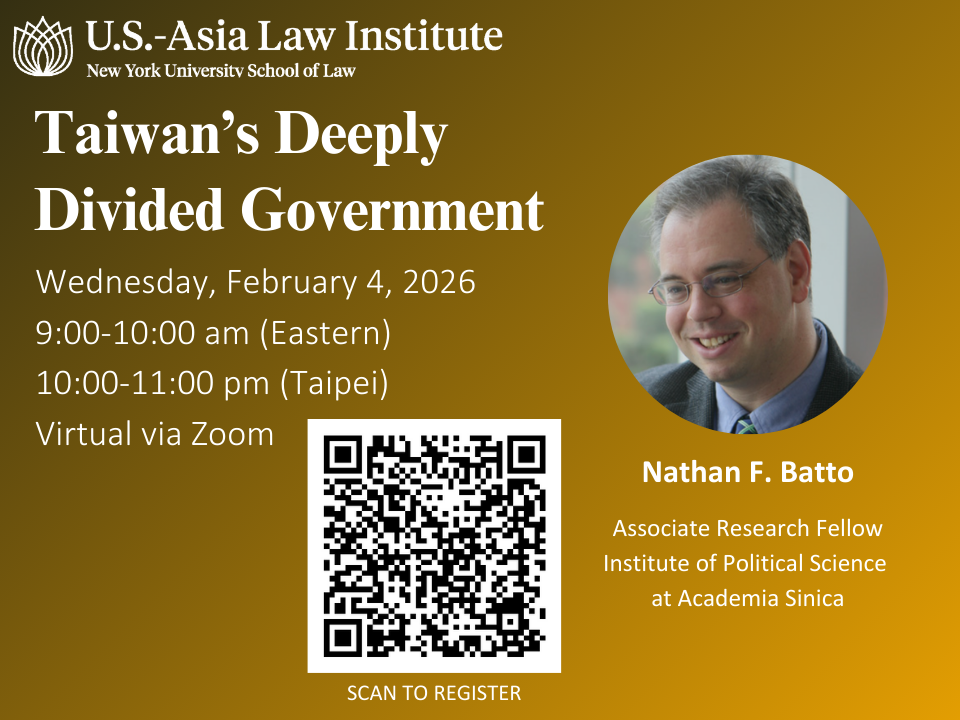
One of the most complicated topics in contemporary international relations is the status of the self-governing island of Taiwan and its government in Taipei, formally called the government of the Republic of China. In this October 9, 2025 talk, Julian Ku, professor of law at Hofstra University, explains what international law says about the use of force for self-defense and collective self-defense in a potential cross-strait conflict, and argues that the United States and Taiwan should prepare credible legal arguments now to rally international support.
Eight years since its founding, the China International Commercial Court does not (at least not yet) loom large in the competitive landscape of international commercial courts. Older courts in London, Singapore, and Dubai handle much larger caseloads each year. But Susan Finder writes that the CICC is a work in progress, and tracking its development can yield insights about the ambitions of China’s judiciary.
In 2023, the Hong Kong Court of Final Appeal delivered a landmark judgment in Sham Tsz Kit v. Secretary for Justice, giving the Hong Kong government two years to provide an alternative legal framework to recognize same-sex partnerships. The court’s deadline has passed with no such legal framework in place. Preston Cheung and Venisa Wai write that what the government does next will send an important signal about the future of Hong Kong’s constitutional order and the authority of the Court of Final Appeal in deciding constitutional questions.
January 25 - January 31
China says it will take “all necessary measures” to safeguard the rights of Chinese companies after Panama's Supreme Court voids a Hong Kong company’s contracts to operate container ports on the Panama Canal; Hong Kong’s anti-corruption body arrests thirty-three people on charges of defrauding government technology grant programs; Japanese Cabinet ministers approve policies to make it harder for foreigners to become Japanese citizens; a South Korean court convicts the former first lady of accepting bribes and sentences her to twenty months in prison; Taiwan’s Kuomintang Party prepares to resume party-to-party dialogue with China’s Communist Party.
January 18- January 24
China purges two more senior generals, including its top-ranked uniformed officer; a Hong Kong court begins the long-awaited trial of three democracy activists who led annual Tiananmen vigils; a Japanese court sentences the killer of former Prime Minister Shinzo Abe to life in prison; a South Korean court convicts former Prime Minister Han Duck-soo of aiding an insurrection and sentences him to twenty-three years in prison; Taiwan’s Legislative Yuan blocks the eighth attempt to review President Lai Ching-te’s US$39.6 billion special defense budget.
January 11- January 17
China’s Commerce Ministry says stronger export controls and supply chain security are top priorities for 2026; Hong Kong’s High Court hears arguments about how severe a sentence to give former Apple Daily founder Jimmy Lai; the prime ministers of Japan and South Korea - which have had rocky relations in recent years - agree to increase cooperation in economic security, AI, defense, crime fighting, and other areas; a South Korean court sentenced former President Yoon Suk Yeol to five years in prison at the conclusion of the first of a suite of criminal trials stemming from his 2024 declaration of martial law; Taiwan’s opposition-dominated legislature opens public hearings on impeaching President Lai Ching-te as the legislature and executive remain locked in a standoff over the allocation of government funds.
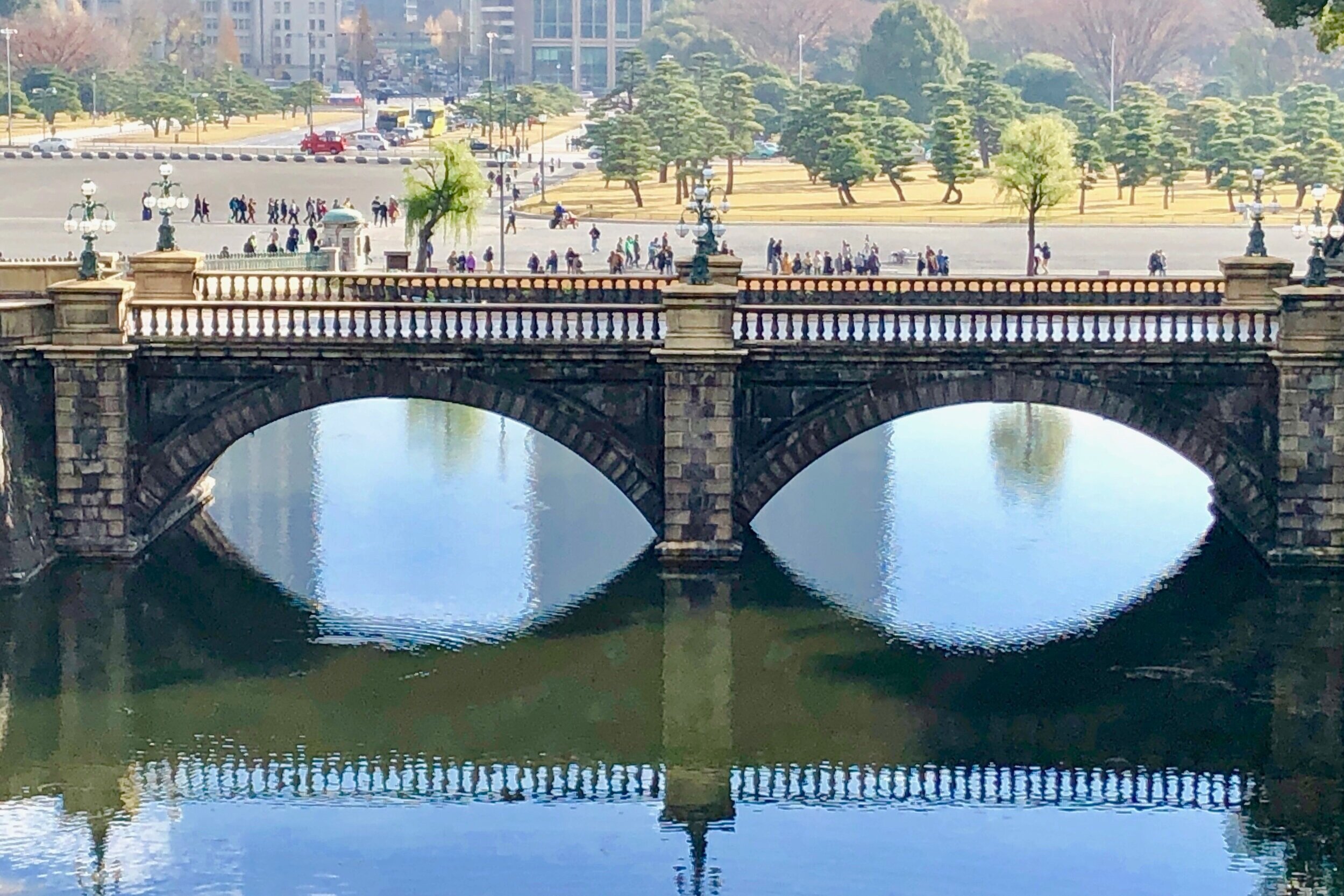
Program on International Law & Relations in Asia

